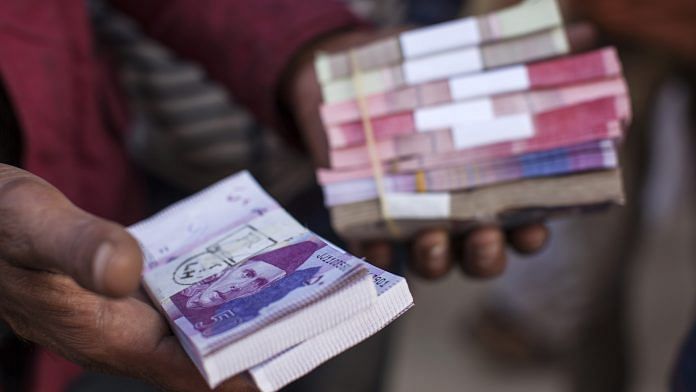New Delhi: Pakistan’s once burgeoning startup world was rocked last week when e-commerce fast delivery service Airlift — akin to India’s Dunzo and Blinkit — announced its closure. It cited the “devastating impact” of the global economic recession and market downturn on the startup’s ability to meet its capital requirements despite attempts at restructuring.
What was once a promising market that boomed due to the Covid pandemic and government reforms, with prospective entrepreneurs utilising the indoor downtime to explore the digital space, now threatens to go up in flames.
While high-profile casualties and dominoes falling off during Pakistan’s ongoing economic crisis can be considered an inevitability, Airlift’s shutdown is significant. It is due to its status in the eyes of the Pakistani media and the global startup space — it was the country’s ‘poster child’. In August last year, the instant last-mile delivery startup had raised $85 million dollars in its Series B funding round, attracting the cash of venture capitalists from the UK and the US — Harry Stebbings and Josh Buckley, respectively.
“The funding round is the largest ever round for a Pakistani startup and is equivalent to the entire amount raised by local startups so far this year and the highest in the MENA [Middle East and North Africa] region,” Deal Street Asia had reported at the time.
Airlift’s funding in the third quarter of 2021 was one among other 82 startups’ publicly announced funding across stages, from the seed to Series B. According to the documentation work done by local consultancy firm Invest2Innovate and cited by Al Jazeera, these startups raised a ‘record-breaking’ 350 million dollars overall last year.
By contrast, this year, so far, has seen funding records of just 37 startups, 21 of which were during the first quarter with just two — merchant platform Bazaar and versatile e-commerce app Bykea — at the Series B stage.
And that’s not all. Prior to the three-year-old Airlift’s departure, other well-known start-ups like Egyptian bus sharing service Swvl and Turkish second-hand automobile marketplace VavaCars announced a temporary suspension and a permanent exit, respectively, from the Pakistani market in June.
Also read: Where do founders of 100 Indian unicorns come from? IIT Delhi tops list, IIMs nurtured many too
Insiders’ view
But insiders like Golootlo co-founder Ali Meruani say that this is part and parcel of a risky industry where 90 per cent of participants don’t make it in the long run.
“Pushing boundaries means that failure is part of the equation, so we should be comfortable with it. We should celebrate them and celebrate failures. Running a start-up means you must be resilient, so this is just another bump in the road,” Meruani told Dawn, adding that the shock over Airlift’s downfall is more to do with the ‘small’ size of Pakistan’s start-up ecosystem.
The founder of Pakistani venture capital firm i2i ventures, Kalsoom Lakhani, concurs with Meruani about the industry’s size. “The challenge with Pakistan is that we’re not a ‘too big to fail’ ecosystem. We can’t afford anybody failing at this point, as it’s bad for perceptions about our environment. As we’re such a new economy, every single company becomes an ambassador — especially Airlift,” Lakhani told Rest of World, an online publication that covers tech stories in non-Western nations.
However, the reserved optimism expressed by VCs and start-up founders must be taken into account, with systemic issues affecting Pakistan’s start-up space as outlined by Al Jazeera.
Alongside a ‘drastic’ gender inequality, other roadblocks that more directly appear to impact start-ups in the country include a lack of diversity among local angel investors, unclear taxation laws for foreign investors, and a workforce that is not yet trained for senior positions in this new wave of digital firms, the Al Jazeera report added.
“It is imperative that the government and all other key stakeholders understand that we are at a crossroads where addressing the needs of these start-ups and their aliates and creating a favourable environment for them will determine the course of the entire digital economy over the years to come,” Invest2Innovate’s detailed 2021 report warned, with the 2022 downturn acting as a stark reminder for Pakistan.
(Edited by Humra Laeeq)



